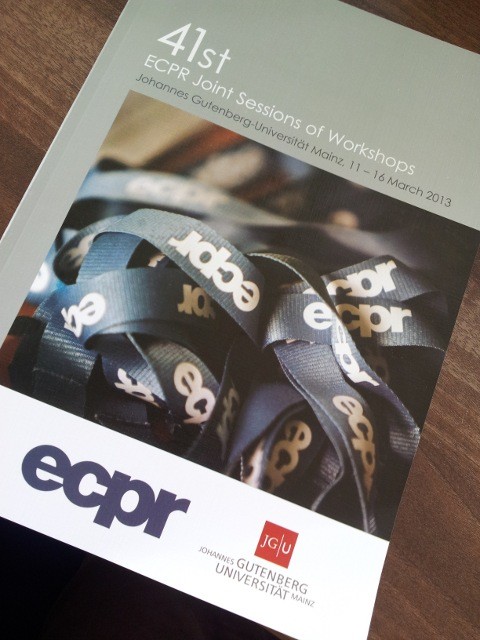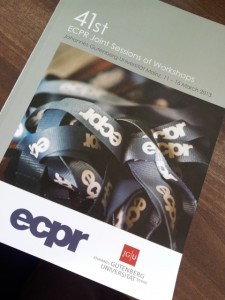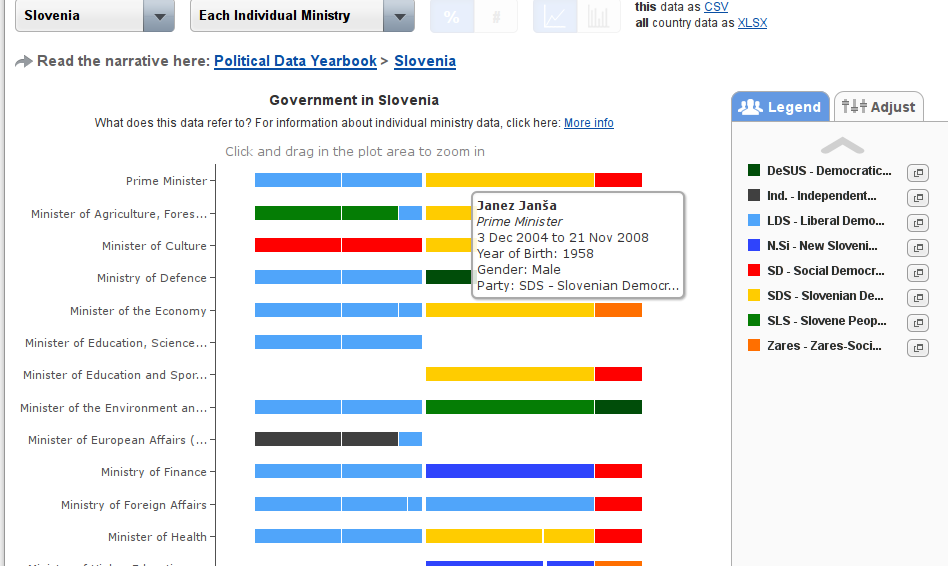If 600+ scientists follow current government advice, they should drink about 3000 litres of water over a five day period. Accordingly, roughly that amount was delivered yesterday by our partner Viva con Agua, leaving me slightly worried about the structural integrity of the floor, which is more attuned to support mildly obese academics. It’s really not easy being green.
Other deliveries include 300 metres of power cord and several and hundreds of kilos of books. While I always knew that running this show involves a lot of stuff, actually seeing all of it squeezed into one room is disconcerting and strangely exhilarating at the same time.




